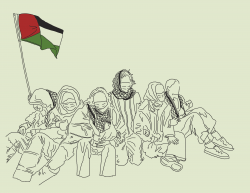After four or five intense semesters at Georgetown, most students consider their time abroad as a time to relax while perhaps enjoying a few alcoholic beverages. While adapting to a foreign environment and immersing oneself in a foreign language is certainly challenging, the workload abroad tends to be much lighter than a semester spent at Georgetown. A new addition of a community-based learning option to the study abroad curriculum, offering students credit for volunteer work while abroad, may make the study abroad experience a richer one.
Georgetown students studying abroad at seven locations will soon be able to participate in pilot programs that incorporate in-country community service into the curriculum of a sociology class. Taken in addition to other coursework, these volunteer-based courses will give students an additional credit while they engage local society on a deeper level.
Over the next year and a half, community-based learning options will be launched in England, Ecuador, Chile, the Dominican Republic, Senegal and Turkey.
Recent coordinated efforts of the Department of Sociology and Anthropology, the Center for Social Justice and the Office of International Programs may make study abroad a more valuable experience for all involved.
Kathleen Maas Weigert, director of the Center for Social Justice said that “agencies that are really ready to take students in the context of this course” will be chosen by the local universities in conjunction with OIP.
The actual nature of the volunteer work will differ from site to site, with the programs “taking the agenda from the community itself,” rather than imposing their own projects on the communities, according to Lori Citti, the associate director of the Office of International Programs. Thus, the nature of the classes as well as the volunteer work performed will vary from site to site.
Currently, Georgetown students stateside can add a one-credit service element to a course, by completing 40 hours of community service and writing a series of papers through the “service learning credit program.” This program, however, is limited each semester to 20 or 25 students. The expansion of service learning programs abroad multiplies the chances for social involvement.
Participation in volunteer work will allow students to connect with their surroundings on a deeper level. Weigert hopes the program helps students “connect with the people and adds an element of depth to their learning and understanding of another world.” We hope students will take advantage of these opportunities to make their study abroad experience richer overall and as a result, seem less like rowdy tourists on an extended stay. We laud the Office of International Programs, Center for Social Justice, and Department of Sociology and Anthropology for the creation of these programs.




